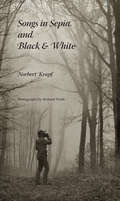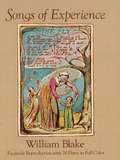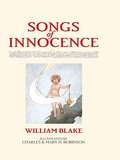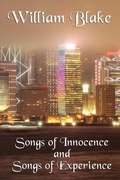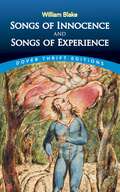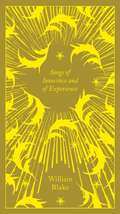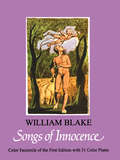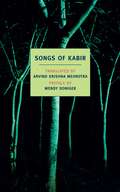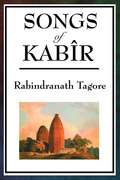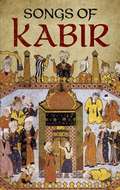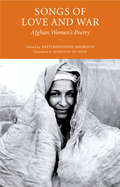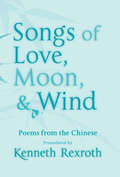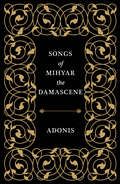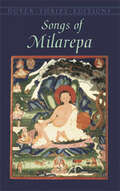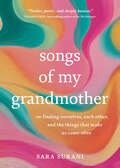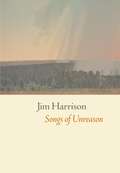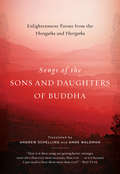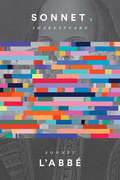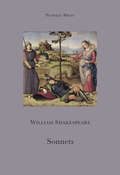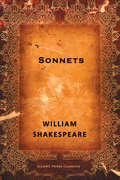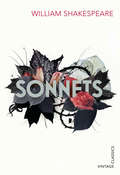- Table View
- List View
Songs in Sepia and Black & White
by Norbert Krapf“In these 101 poems Norbert Krapf explores the richness of his ancestry . . . a book that confirms Krapf’s status as one of America’s finest living poets.” —Benjamin Hedin, author of Under the SpellA collaboration born of a shared love of music, photography, poetry, and Indiana, this book celebrates the history, literature, and art that informs the present and shapes our identity. Richard Fields’s black and white photos are evocative imaginings of Norbert Krapf’s poems, visual metaphors that extend and deepen their vision. Krapf’s poems pay tribute to poets from Homer and Virgil to Walt Whitman, Emily Dickinson, and Wendell Berry, and to singer-songwriters such as Woody Guthrie and John Lennon. They also explore the poet’s German heritage, question ethnic prejudice and social conflict, and praise the natural world. The book includes a cycle of 15 poems about Bob Dylan; a public poem written in response to 9/11, “Prayer to Walt Whitman at Ground Zero”; “Back Home,” a poem reproduced in a stained glass panel at the Indianapolis airport; and ruminations on the twentieth anniversary of the fall of the Berlin Wall, “Questions on a Wall.”“Pursuing a tri-fold creative concept that unites poetry, art in the form of photography, and music is certainly not a light challenge. Norbert Krapf has mastered it with remarkable virtuosity and once again reinforced his reputation as the pre-eminent German-American poet of the English language.” —Yearbook of German-American Studies“Some of Krapf’s poetry is breathtakingly moving. Most of it is very insightful . . . The way he joins history and emotion is wonderful.” —Englewood Review of Books
Songs of Experience: Facsimile Reproduction with 26 Plates in Full Color
by William BlakeOne of Blake's most inspired creations, "The Tyger" mingles the lyric and mystical in an exquisite union. Now you can experience the beauty of this and other poems the way Blake intended them -- with his own hand-colored illustrations giving them visual form.This facsimile edition of one of Blake's celebrated "Illuminated Books" reproduces a collection of calligraphed poems, each enclosed in a masterful full-color illustration. Twenty-six plates reprinted from a rare 1826 etched edition include "London," "A Little Boy Lost," "Holy Thursday," The Voice of the Ancient Bard," and other immortal verse. To enhance reading, the texts of all the poems are transcribed separately, following the plates.Dynamic designs and simplicity of language convey Blake's vision of mankind and his condemnation of a wealthy society insensitive to poverty and unhappiness. Moreover, its universal themes make Songs of Experience just as poignant and profound today. Lovers of literature and fine art will want to add this faithful, inexpensive facsimile of an immortal classic to their libraries.
Songs of Innocence
by William Blake Charles Robinson Mary H. RobinsonWilliam Blake's 1789 classic evokes an idyllic world, populated by pipers, shepherds, angels, and joyful children. Graced by Charles and Mary Robinson's ethereal Art Nouveau illustrations, this special edition comprises the complete Songs of Innocence, in addition to nine poems from Songs of Experience.
Songs of Innocence and Songs of Experience
by William BlakeTwo classics of English poetry, alternately describing childhood states of innocence and their inevitable corruption by a harsh and unjust world. Contains the full texts of all the poems in the original 1794 edition of both collections. Alphabetical lists of titles and first lines. Includes a selection from the Common Core State Standards Initiative.
Songs of Innocence and Songs of Experience: Shewing The Two Contrary States Of The Human Soul (Dover Thrift Editions)
by William BlakeAs both painter and poet, William Blake (1757–1827) was a powerful and visionary artist whose two early collections of poetry, Songs of Innocence and Songs of Experience, contain memorable lyric verses embodying the emerging spirit of Romanticism. <p><p> The two works were published together in 1794 with the subtitle, "Shewing the Two Contrary States of the Human Soul." The poems of Songs of Innocence describe childhood states of naturalness and purity in delicately beautiful lyrics that reveal a child's unspoiled and beatific view of life and human nature. In Songs of Experience the mood and tone darken, the poems suggesting the bitter corruptions and disillusionment that await the innocent. <p> The contrast between the two sets of lyrics is perhaps at its most acute in the poems "The Lamb" and "The Tyger," the latter ultimately expressing wonderment at the seemingly paradoxical coexistence of good and evil. The full texts of all the poems in the 1794 edition of both collections are included in this volume.
Songs of Innocence and of Experience (Penguin Clothbound Poetry)
by William BlakeA collectible new Penguin Classics series: stunning, clothbound editions of ten favourite poets, which present each poet's most famous book of verse as it was originally published. Designed by the acclaimed Coralie Bickford-Smith and beautifully set, these slim, A format volumes are the ultimate gift editions for poetry lovers. Songs of Innocence and Experience is an illustrated collection of poems by William Blake, a seminal figure of the Romantic Movement. The volume was published in two parts with Songs of Innocence being published in 1789 and Songs of Experience in 1794. In the volume Blake juxtaposes the innocent world of childhood with the corrupt and repressed one of adults. Many of the poems are in pairs enabling the reader to see the same situation first from the perspective of innocence and then from that of experience. This collection includes some of his greatest poems including 'The Lamb', 'The Chimney Sweeper' and 'The Tyger'.
Songs of Innocence: Shewing The Two Contrary States Of The Human Soul (Dover Fine Art, History of Art)
by William BlakeWilliam Blake's innovations in engraving techniques brought about his brilliant synthesis of visual and poetic art and signaled the beginning of his famous "Illuminated Books," of which the Songs of Innocence was the first and most popular. Unfortunately, Blake's vision is generally known to the world in amputated form: because of the difficulty and expense of reproducing his original conception, most editions of Blake's work offer only the printed text, with no trace of the visual counterpart so essential to his "System."This new, facsimile edition of the Songs of Innocence reproduces Blake's color plates in a fashion which the artist himself would have approved. The 31 plates -- printed on facing pages which are the same size of Blake's own first edition -- offer one of the more brightly colored versions of this significant volume, no two copies of which are the same. As a special aid to readers, a typographical reprint of the text of poems follows the plates. Such classic "songs" as "The Lamb" and "The Chimney Sweeper" are now accessible to all in the symbiotic union of poem and picture that is crucial to a total understating of Blake's mind and art.
Songs of Kabir
by Wendy Doniger Arvind Mehrotra KabirA New York Review Books Original. Transcending divisions of creed, challenging social distinctions of all sorts, and celebrating individual unity with the divine, the poetry of Kabir is one of passion and paradox, of mind-bending riddles and exultant riffs. These new translations by Arvind Krishna Mehrotra, one of India's finest contemporary poets, bring out the richness, wit, and power of a literary and spiritual master.
Songs of Kabir
by Rabindranath TagoreThe poet Kabór is one of the most interesting personalities in the history of Indian mysticism. A great religious reformer, the founder of a sect to which nearly a million northern Hindus still belong, it is yet supremely as a mystical poet that Kabór lives for us. A beautiful legend tells us that after his death his Mohammedan and Hindu disciples disputed the possession of his body; which the Mohammedans wished to bury, the Hindus to burn. As they argued together, Kabór appeared before them, and told them to lift the shroud and look at that which lay beneath. They did so, and found in the place of the corpse a heap of flowers; half of which were buried by the Mohammedans at Maghar, and half carried by the Hindus to the holy city of Benares to be burned.
Songs of Kabir
by Rabindranath Tagore KabirA weaver by trade and a mystic by nature, the 15-century poet Kabir created timeless works of enlightenment that combine the philosophies of Sufism, Hinduism, and the Kabbala. Expressed in imagery drawn from common life and the universal experience, Kabir's poems possess an appealing simplicity. This collection of 100 songs reflects nearly every aspect of the mystic's thought and emotions: ecstasy and despair, tranquil beatitude and fervid illumination, and moments of intimate love. The acclaimed translation is by Rabindranath Tagore, a popular Indian poet and Nobel laureate.
Songs of Love and War: Afghan Women's Poetry
by Sayd MajrouhThe authors of oral literature in the Pashtun language create their work at a far remove from any books. Generally deprived of the support of schools and universities, their compositions are inseparable from song. Their poetry is never declaimed; rather, their rhyme and rhythm have melodic value.These popular improvisations do not exalt mystic love. In them there is no aspiration whatsoever to an unfathomable and incommunicable heaven, nor devotion to the lord, nor praise for an absolute master, nor any Adonis. To the contrary, they are songs of the earth. They celebrate nature, mountains, rivers, dawn and night&’s magnetic space. They are songs of war and honor, shame and love, beauty and death. The repression of Afghan women has caused untold suffering, particularly through moral subjugation. Infant daughters and their mothers are received with scorn and shame, and lead lives of subordination and humiliation. Their rebellion against these tribal codes comes only through suicide and song. Translated from the Pashtun into French by the eminent Sayd Bahodine Majrouh, the greatest Afghan poet of the twentieth century, his text has been rendered into English in the expert hands of Marjolijn de Jager of the Translation Department at NYU.
Songs of Love, Moon, & Wind: Poems from the Chinese
by Kenneth Rexroth Eliot Weinberger"Nothing stands still in this poetry: the wind blows the trees, the lake water ripples and the ever-present road runs in and out of the hills."--American Poetry Review Moss covered paths between scarlet peonies, Pale jade mountains fill your rustic windows. I envy you, drunk with flowers, Butterflies swirling in your dreams. --Ch'ien Ch'i This exquisite gift book offers a wide sampling of Chinese verse, from the first century to our own time, beginning with the lyric poetry of Tu Fu, moving to the folk songs of the Six Dynasties Period, on to the Sung Dynasty, and to the present. Also represented are some of the best-known women of Chinese poetry, including Li Ching-chao and Chu Shu-chen. These simple, accessible but profound poems come through to us with a breathtaking immediacy in Kenneth Rexroth's English versions--a wonderful gift for any lover of poetry.
Songs of Mihyar the Damascene
by AdonisA brilliant new translation of the landmark poetry collection by “the most eloquent spokesman and explorer of Arabic modernity” (Edward Said) Written while Adonis was on a scholarship in Paris from 1960 to 1961, Songs of Mihyar the Damascene is widely considered to be the apex of the modernist poetry movement in the Arab world. Drawing not only on Western influences, such as T. S. Eliot and Nietzsche, but on his own culture’s deep poetry traditions, Adonis single-handedly accomplished a masterful and radical transformation of the rigid formal structures and themes of Arabic poetry. The name “Mihyar” has no inherent meaning in Arabic, though its root letters mean “to destroy, topple, demolish.” Mihyar is Adonis’s poetic alter ego, his Zarathustra figure (in his own words), who has come to smash through any monolithic vision of Arab culture—including certain orthodox Islamic views—in favor of a more diverse and open-ended outlook. Songs of Mihyar is a masterpiece of world literature that rewrites—through Mediterranean myths and renegade Arabic mystics—what it means to be an Arab in the modern world.
Songs of Milarepa (Dover Thrift Editions)
by MilarepaA Buddhist holy man whose songs have been sung and studied since the twelfth century, Milarepa exchanged a life of sin and maliciousness for one of contemplation and love, eventually reaching—according to his disciples—the ultimate state of enlightenment. His thousands of extemporaneously composed songs communicate complex ideas in a simple, lucid style. This volume features the religious leader's best and most highly esteemed songs of love and compassion. Sure to inspire and provide reading pleasure to a wide audience.Considered by many of his followers to be another St. Francis, Milarepa exchanged a life of sin and maliciousness for one of contemplation and love, eventually reaching a state of enlightenment. His thousands of extemporaneously composed songs have been widely sung and studied since they were first recorded and disseminated centuries ago by his disciples. This volume features the best and most highly esteemed of the religious leader's songs of love and compassion that include lessons on the negative aspects of ambition and the importance of finding inner peace. In addition, he stresses the briefness of life: ". . . so apply yourself to meditation. Avoid doing evil, and acquire merit, to the best of your ability, even at the cost of life itself. In short: Act so that you have no cause to be ashamed of yourselves and hold fast to this rule."
Songs of My Grandmother: On Finding Ourselves, Each Other and the Things That Make Us Come Alive
by Sara SuraniA collection of poetry and prose that offers comfort, community, and belonging through stories of love, loss, change, and rebirth.In this collection of poetry and prose, Sara Surani weaves together the universal songs of her ancestors, voices of women she has met across the world, and her own reflections. These are not songs with music, but melodies of memory and spirit–of love and laughter. Of curiosity and wonder. Of healing and hope. Of the little moments when time slows down.The daughter of Pakistani-Muslim immigrants who moved to South Texas to give their daughter a better life, Surani draws on her roots to create a tapestry of stories; comforting and deeply familiar. Throughout the book, she braids shared struggles with collective joy, reminding us of all that we hold in common while conjuring a deep sense of belonging–one that is needed now, more than ever.
Songs of Unreason
by Jim Harrison#1 Poetry Foundation BestsellerMichigan Notable Book"A beautifully mysterious inquiry... Here Harrison-forthright, testy, funny, and profoundly discerning-a gruff romantic and a sage realist, tells tales about himself, from his dangerous obsession with Federico García Lorca to how he touched a bear's head, reflects on his dance with the trickster age, and shares magnetizing visions of dogs, horses, birds, and rivers. Oscillating between drenching experience and intellectual musings, Harrison celebrates movement as the pulse of life, and art, which 'scrubs the soul fresh.'" -Booklist"Harrison has written a nearly pitch-perfect book of poems, shining with the elemental force of Neruda's Odes or Matisse's paper cutouts....In Songs of Unreason,, his finest book of verse, Harrison has stripped his voice to the bare essentials--to what must be said, and only what must be said." -The Wichita Eagle"Songs of Unreason, Harrison's latest collection of poetry, is a wonderful defense of the possibilities of living.... His are hard won lines, but never bitter, just broken in and thankful for the chance to have seen it all." -The Industrial Worker Book Review"Unlike many contemporary poets, Harrison is philosophical, but his philosophy is nature-based and idiosyncratic: 'Much that you see/ isn't with your eyes./ Throughout the body are eyes.'... As in all good poetry, Harrison's lines linger to be ruminated upon a third or fourth time, with each new reading revealing more substance and raising more questions." -Library Journal"It wouldn't be a Harrison collection without the poet, novelist, and food critic's reverence for rivers, dogs, and women...his poems stun us simply, with the richness of the clarity, detail, and the immediacy of Harrison's voice." -Publishers WeeklyJim Harrison's compelling and provocative Songs of Unreason explores what it means to inhabit the world in atavistic, primitive, and totemistic ways. "This can be disturbing to the learned," Harrison admits. Using interconnected suites, brief lyrics, and rollicking narratives, Harrison's passions and concerns-creeks, thickets, time's effervescence, familial love-emerge by turns painful and celebratory, localized and exiled.
Songs of a Returning Soul: Poems
by Elizabeth LibbeyThis slim volume of poems includes: Song Of The Secouddi Tribe, Psyche at the Graveside, A Riddle in Honor of the New Year, Juncture, Thinking into Birds...
Songs of the Sons and Daughters of Buddha: Enlightenment Poems from the Theragatha and Therigatha
by Andrew Schelling Anne WaldmanA lyrical translation of an inspired selection of verses from the earliest Buddhist monks and nuns.More than two thousand years ago, the earliest disciples of the Buddha put into verse their experiences on the spiritual journey--from their daily struggles to their spiritual realizations. Over time the verses were collected to form the Theragatha and Therigatha, the "Verses of Elder Monks" and "Verses of Elder Nuns" respectively. In Songs of the Sons and Daughters of the Buddha, renowned poets Andrew Schelling and Anne Waldman have translated the most poignant poems in these collections, bringing forth the visceral, immediate qualities that are often lost in more scholarly renditions. These selections reveal the fears, loves, mishaps, expectations, and joys of the early monks and nuns, when, struck by wild insight, they cried out the anguish or solace they knew in their lives.
Sonnet's Shakespeare
by Sonnet L'AbbeBronwen Wallace Memorial Award-winning poet Sonnet L'Abbé returns with her third collection, in which a mixed-race woman decomposes her inheritance of Shakespeare by breaking open the sonnet and inventing an entirely new poetic form.How can poetry grapple with how some cultures assume the place of others? How can English-speaking writers use the English language to challenge the legacy of colonial literary values? In Sonnet's Shakespeare, one young, half-dougla (mixed South Asian and Black) poet tries to use "the master's tools" on the Bard's "house," attempting to dismantle his monumental place in her pysche and in the poetic canon.In a defiant act of literary patricide and a feat of painstaking poetic labour, Sonnet L'Abbé works with the pages of Shakespeare's sonnets as a space she will inhabit, as a place of power she will occupy. Letter by letter, she sits her own language down into the white spaces of Shakespeare's poems, until she overwhelms the original text and effectively erases Shakespeare's voice by subsuming his words into hers. In each of the 154 dense new poems of Sonnet's Shakespeare sits one "aggrocultured" Shakespearean sonnet--displaced, spoken over, but never entirely silenced. L'Abbé invented the process of Sonnet's Shakespeare to find a way to sing from a body that knows both oppression and privilege. She uses the procedural techniques of Oulipian constraint and erasure poetries to harness the raw energies of her hyperconfessional, trauma-forged lyric voice. This is an artist's magnum opus and mixed-race girlboy's diary; the voice of a settler on stolen Indigenous territories, a sexual assault survivor, a lover of Sylvia Plath and Public Enemy. Touching on such themes as gender identity, pop music, nationhood, video games, and the search for interracial love, this book is a poetic achievement of undeniable scope and significance.
Sonnets
by William ShakespeareWilliam Shakespeare is thought to have written his sonnets for a private audience over several years before they were first published in 1609. The verses that compose the sonnets are often subversive, elusive and intimate, shaping an erotic body of poetry in the pursuit of the depths of emotion. Shakespeare's Sonnets express both the narrator's pure love for a 'fair youth , and his uncontrollable desire for a dark lady. There has been much debate concerning the identity of the individuals to whom the sonnets are addressed, and the mysterious dedication "To the onlie begetter of these insuing sonnets Mr W Hall happinesse and that eternitie promised by our ever-living poet wisheth the well-wishing adventurer in setting forth", which appears in the 1609 edition, offers no clear evidence. Shakespeare's sonnets are among the finest ever written in English.
Sonnets
by William ShakespeareWritten primarily in four-line stanzas and iambic pentameter, William Shakespeare's 154 sonnets address such themes as love, beauty, honesty, and the passage of time, and are now recognized as some of the most enduring poetry of all time.
Sonnets
by William Shakespeare‘Love alters not with his brief hours and weeks, But bears it out even to the edge of doom’Sonnets are for romantics, starry-eyed lovers and ardent hearts. And Shakespeare’s sonnets are the best ever written.But this is why they are also for cynics, for star-crossed lovers and for those who know the anguish of unrequited love. Some of them are written to a young man, some of them to a woman. And although the poems are full of mystery – why did Shakespeare write them, what was his sexuality? – each one speaks to us from across the centuries of love, hate and the intensity of being alive.Includes exclusive content: In the 'Backstory' you can find a short, handy, funny guide to everything you might want to know about Shakespeare and his sonnets.‘This is a crazy, all-consuming, feverish and sweaty love; love, in all its uncut, full-strength intensity; an adolescent love’ Don Paterson, Guardian
